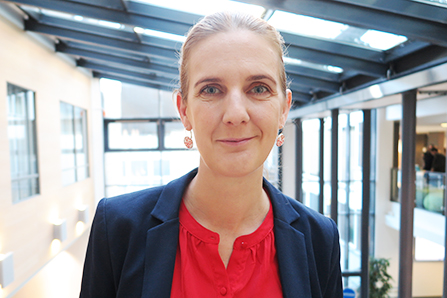End is in sight for Sweden’s gambling monopoly
GamblingNanette-Marie Forsström /freelancejournalist/Outhouse Media, the article is translated by Semantix. Published 18 Dec 2017
Sweden plans to open up parts of the gambling market to competition by introducing a licensing system. Researchers remain sceptical about whether it will reduce the amount of gambling advertising or the accessibility of gambling, as some had hoped. Research indicates that the same rule of thumb applies to gambling as it does to alcohol – increased accessibility, results in more problems.
This topic has been subject to extensive political debate, over the last few decades. Although opinions differ as to what changes should be made to the current gambling regulations, all of the political parties agree that stricter rules are needed.
At the same time, Swedes are tired of being inundated with gambling advertising and the market’s reputation has hit a new low, says Jenny Cisneros Örnberg, Director of the Centre for Social Research on Alcohol and Drugs (SoRAD) at Stockholm University.
“A cynic might say that it’s in everyone’s economic interest to raise tax revenues. But, from a consumer protection standpoint, it’s better to have the foreign companies under a Swedish regulatory umbrella that forces them to comply with Swedish laws. At the same time, it goes without saying that you can’t subject foreign companies to regulations that are too strict or ask them to pay high tax rates, as then they won’t want to apply for a license”, she explains.
While unlicensed foreign companies have increased their market share, the national monopoly, Svenska Spel, has lost ground, despite the fact that the market has grown slightly. For example, foreign gambling companies, already control over 50 per cent of the internet gambling market. Last year, the Swedish gambling market enjoyed revenues totalling SEK 22 billion after the payout of winnings.
Tight timeline
Last spring, a study of the gambling regulations was submitted to Sweden’s Minister of Public Administration, Ardalan Shekarabi. Under the proposal, Sweden will dismantle its gambling monopoly and switch to a licensing system, from the beginning of 2019.
The key ideas of the new gambling laws are a high level of consumer protection, high security for those playing the games and clear preconditions for being granted permission to participate in the market. The Swedish gambling market would be divided into three sections: one exclusively for the state, one for nonprofits and one for gambling companies that meet the imposed requirements. The state would operate land-based casinos and gambling machines.
The nonprofit sector (including foundations and associations) will continue to run lottery businesses and land-based bingo. The third, the license-based sector will constitute a competitive market that may offer online casino games, betting, poker and bingo. Land-based sports betting and horse betting will also be included in the competitive section. It is proposed that the limited liability company, Trav och Galopp (ATG), no longer control a monopoly on horse race betting.
Together with Associate Professor Jörgen Hettne, Jenny Cisneros Örnberg, has authored a chapter on the challenges the changes in the regulations will entail in relation to current EU legislation. Certain points of the proposal may conflict with current applicable EU regulations and those issues could take more than a year to resolve, she explains.
Taxation is one such issue. In Sweden, nonprofit organisations are actually tax-exempt, whereas it is proposed that foreign operators wanting to establish themselves on the Swedish market be required to pay an 18 per cent lottery tax. Thus, the questions are whether the nonprofits are given the upper hand due to their tax exemption, and whether such an advantage could be interpreted as a hidden government subsidy, under current EU legislation.
“Is it a problem if the different markets are assigned different tax brackets? We researchers don’t think so, because the nonprofits and commercial companies have different purposes in running their businesses. But, it may take time to confirm our theory”, notes Cisneros Örnberg.
More operators, increased accessibility?
Jenny Cisneros Örnberg agrees that re-regulation is needed, but she is sceptical about whether or not the current proposal will reduce gambling accessibility.
“I think it creates the potential to gain more control of the market – greater order, as politicians have pointed out. At the same time, we will probably have the same number of operators in the Swedish market, even if they are licensed. I don’t see how a licensing system will decrease access to gambling”.
The Swedish media has pounced upon one potential risk of the proposed legislation – that of online gambling skyrocketing. Svenska Spel has wanted to start an online casino since 2014; but, the government refused to grant it permission. If, in the future, the monopoly operator is just one of many licensed companies on the market, this could open the door for it to establish its much anticipated and lucrative online casino.
Svenska Spel currently has, by far, the highest number of registered customers, and would thus, be able to grow the market, in one fell swoop, if it suddenly started an online casino.
“The biggest gambling problems are associated with the fast games: internet-based casinos, for example. From a consumer protection perspective, it’s problematic when you have 24/7 accessibility”, says Cisneros Örnberg.
One way to reduce accessibility to land-based games would be to set stricter rules for slot machines; but, they were not included in the mandate of the current investigation.
“Slot machines are strongly linked to problem gambling and I think that limiting them would be highly beneficial. From a regulatory and economic standpoint, that would ‘only’ affect the Swedish monopoly. It’s definitely an issue that I hope the politicians will investigate going forward”, says Jenny Cisneros Örnberg.
The Nordic Welfare Centre arranged an international conference on gambling, The 1st Gambling Policy Conference: Global Prospects, Nordic Perspectives. It was held in Helsinki on 6-7 November 2017. Jenny Cisneros Örnberg participated in the conference.


